
Processed meats
While having an occasional deli sandwich for lunch isn’t likely to kill you, consistent consumption of deli and processed meats over time has been linked with many types of illness, including heart disease and cancer, explains Roger E. Adams, PhD, Houston-based dietitian and nutritionist and founder of eatrightfitness.com. In fact, the World Health Organization (WHO) classifies processed meat (most deli meats, hot dogs, ham, bacon, and sausage) as a carcinogen. “Twenty-two experts from ten countries reviewed more than 800 scientific studies and concluded that consuming 50g (about 1.75 oz) of processed meat daily increased the risk of colorectal cancer by 18 percent,” says Adams. “Additionally, the high sodium content of most processed meats can lead to both acute and long-term increases in blood pressure.”
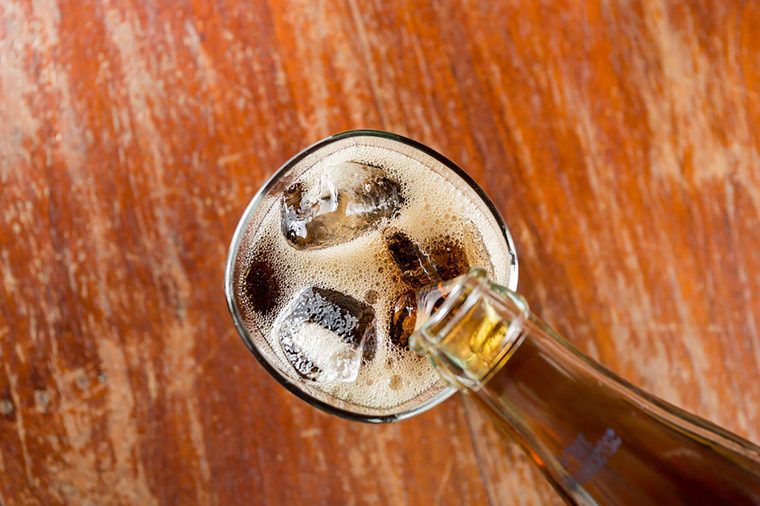
Diet soda
The chemical culprit found in most products containing artificial sweeteners, including the ever-popular diet sodas, is aspartame, which has been linked to brain tumors as well as some blood-related cancers, such as leukemias and lymphomas (though research has been minimally focused on rats). “Aspartate breaks down into the neurotransmitter aspartic acid, which without being bound to other amino acids is neurotoxic,” says Carolyn Dean, MD, ND, health, diet, and nutrition expert.
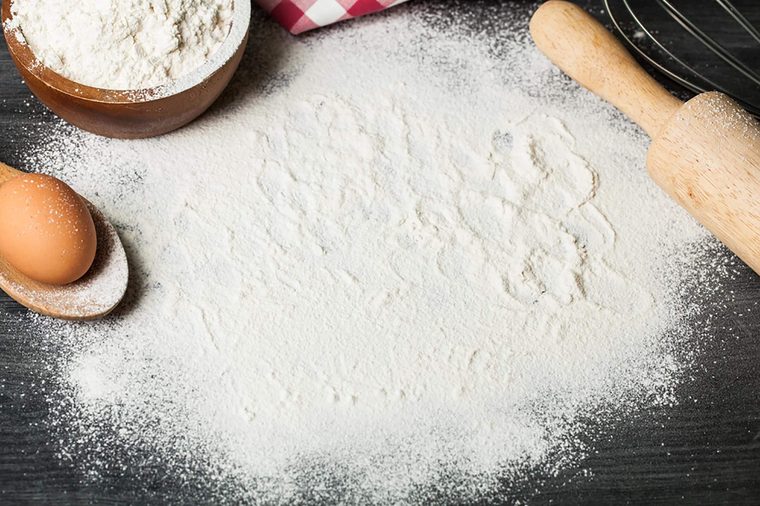
White sugar and white flour products
White foods or foods that have been processed, refined, and often left with a white appearance are not healthy for your body to digest. These foods—think flour, bread, crackers, white rice, pastas, etc.—provide too many simple carbs that convert to blood sugar quickly and can result in insulin resistance and lead to diabetes and heart disease. “Physiologically, sugar causes a surge in the hormone insulin and also alters the way the liver metabolizes the simple form of sugar, glucose,” says Dr. Dean. “Sugar promotes oxidative stress and internal inflammation which is similar to rusting. This internal rusting causes aging, wrinkles, etc., because it damages cells.” Sugar also taxes the adrenal glands and the immune system. When adrenal function is impaired or weak, Dr. Dean explains that a person may suffer from low blood sugar, low blood pressure, low body temperature, and fatigue or exhaustion.
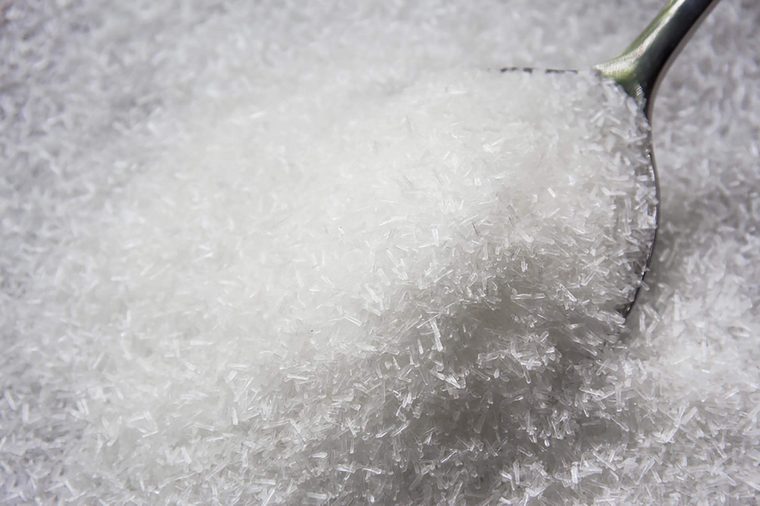
Foods with MSG
This flavor enhancer might make your food taste so good that you can’t put it down, but it’s been linked to a slew of health problems, including headaches, flushing, sweating, facial pressure or tightness, numbness, tingling or burning, rapid, heart palpitations, chest pain, nausea and more. Dr. Dean recommends opting for foods labeled “No added MSG,” or substituting these foods with organic nuts and seeds that are high in magnesium—a mineral that is important to over 700 to 800 enzyme actions within our body, including proper immune function, insulin control, blood sugar balance, and energy production.

Chinese take-out
In addition to MSG, Americanized versions of popular Asian foods tend to be high in salt and fat. “High-fat intake may increase your risk of obesity, heart disease, and cancer,” warns Dr. Adams. “The large amount of sodium added to these foods also may lead to rapid increases in blood pressure, and, if consumed regularly, heart disease.”
Here’s How Much Fat You Really Need in a Day, with a Nutrition Expert’s Wisdom
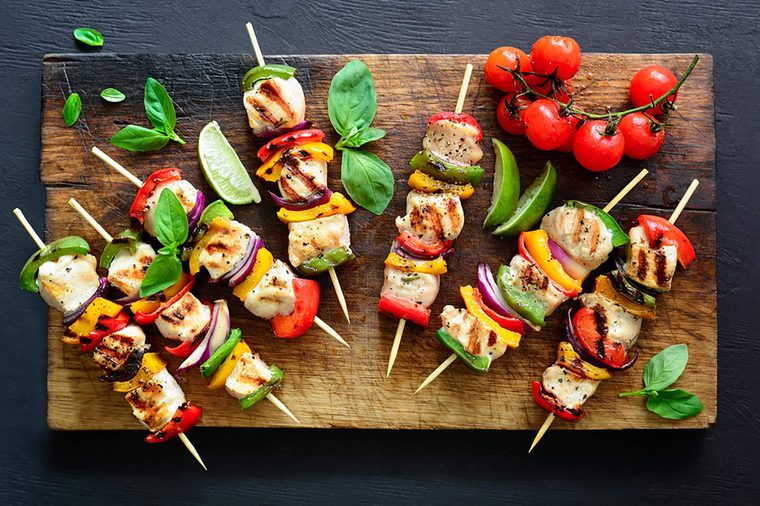
Grilled meats
“When high-heat meets the surface of meat, a chemical reaction occurs involving the formation of heterocyclic amines (HCAa) and polycyclic aromatic hydrocarbons (PAHs),” explains Adams. “These compounds are formed with fat and juices from the meat drip onto open fire, causing flames that contain PAHs that adhere to the surface of the meat.” What’s more: Studies have shown exposure to HCAs and PAHs can cause cancer in animals, and researchers are still investigating associations between meat-cooking techniques and cancer risks. The good news is that there are plenty of hacks to minimize this reaction. Dr. Adams recommends simply using a low-sugar marinade, brushing meats in sauces or oils, or even just dunking the proteins in water before placing on the grill. “This can minimize or block this reaction from occurring,” he says. “Also, frequent turning of the meat while cooking, trimming off burnt or charred pieces or pre-cooking over a lower-heat source will all lower creation of these harmful compounds.”
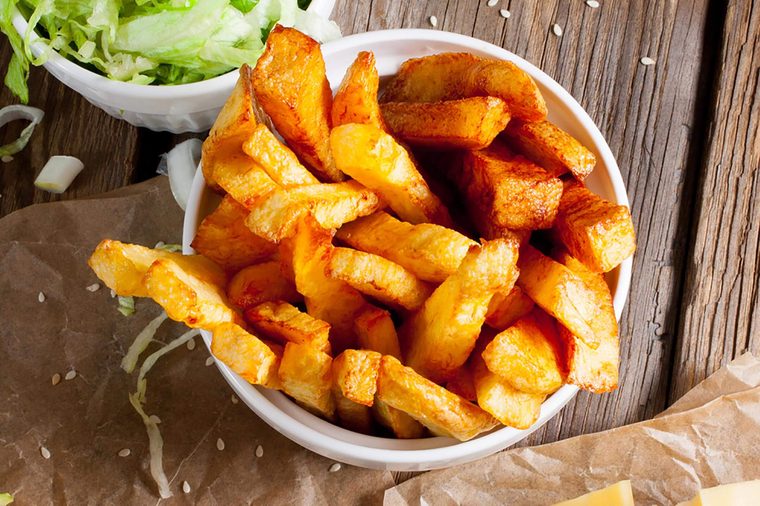
Trans-fats
Sorry to disappoint those who love french fries, pastries, cookies and anything super sweet, frosted or fried, but most of these contain extremely high levels of trans fat. “Trans fats have been linked to inflammation, heart disease, stroke, diabetes, and other chronic conditions that shorten the duration of a lifespan,” warns Sally Warren, PhD, traditional naturopath at Metro Integrative Pharmacy. Studies have shown that a 2-percent increase in energy intake from trans fatty acids was associated with a 23 percent increase in the incidence of CHD that is a major risk factor for sudden cardiac death. Bottom line: Commit your fried and frosted delicacies to rare occasions only.
Eating These Foods Can Lead to Premature Death, Says New Study
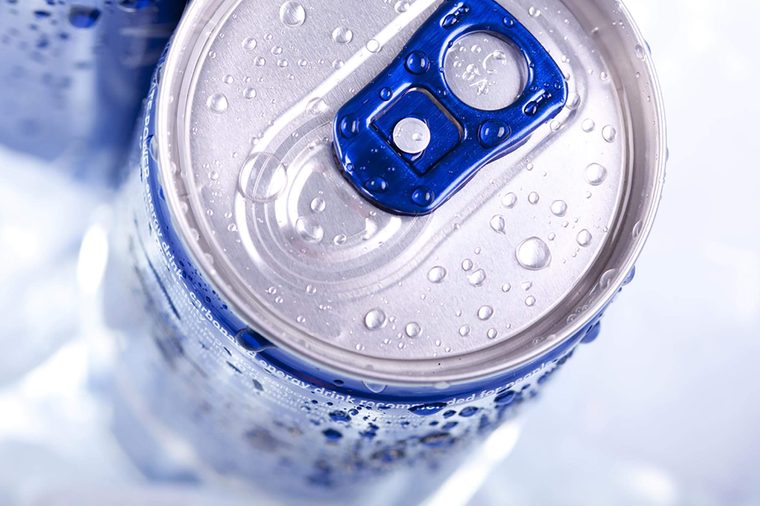
Energy drinks
You know these heavily caffeinated beverages are terrible for you, but you probably still sip them occasionally. Well, experts say that if you want to give your body the best shot at a long and healthy life, your best bet is to stop drinking them altogether. “There is so much caffeine in these drinks that they can cause an arrhythmia, or irregular heartbeat,” says Nicole Weinberg, MD, a cardiologist at Providence Saint John’s Health Center in Santa Monica, California. In rare and extreme cases, sudden death has even been linked with excessive caffeine intake, so you’d be doing yourself a serious favor to sip a naturally sweetened and caffeinated beverage, even coffee, instead.
I Drank Energy Drinks Every Day for a Week—Here’s What Happened
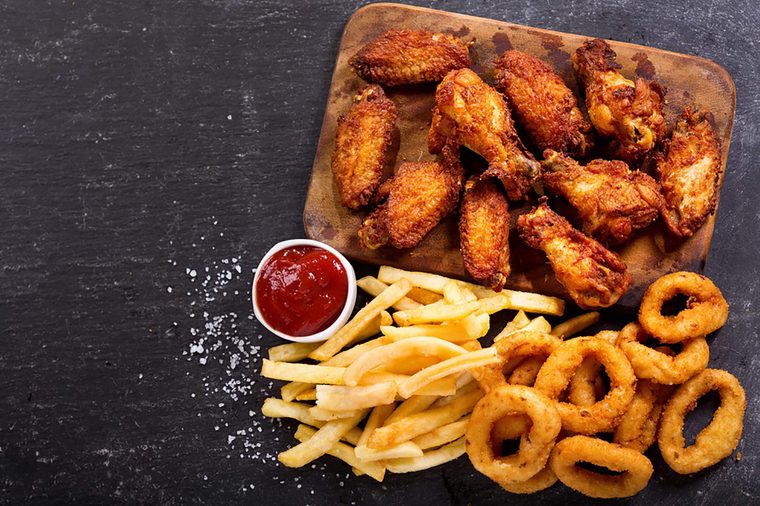
Fast food
As hard as it might be to resist, experts recommend just saying no to hamburgers and fries from McDonald’s or Burger King. “Removing fast food from your diet, which is high in saturated fat and sodium, will help reduce calories and fat,” says Sherry Ross, MD, OB/GYN, and women’s health expert at Providence Saint John’s Health Center in Santa Monica, California. “Within weeks of removing fast food from you diet, your cholesterol levels will start to improve.” Research backs up this theory, as one study published by Public Health Nutrition, found that eating out, in general, cost consumers an average of 200 calories extra each day.
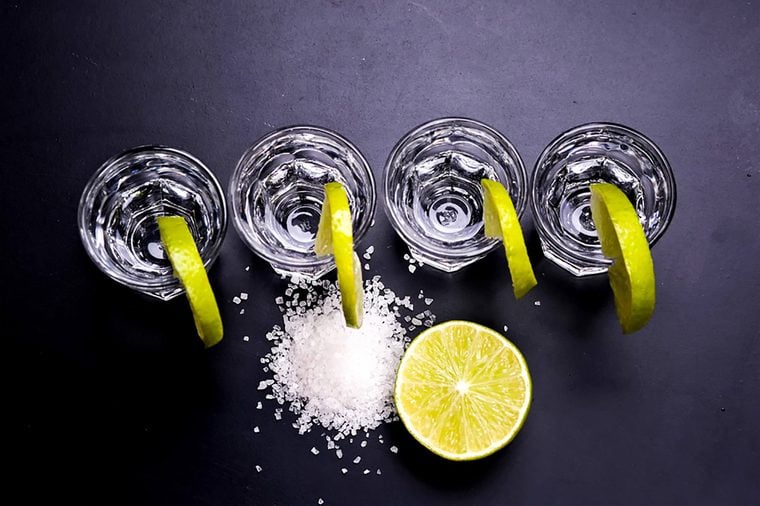
More than 1 to 2 alcoholic beverages a day
Indulging in more than one alcoholic drink per day for women and two drinks per day for men has been linked to negative health effects later in life. “While I seldom tell any of my clients to avoid alcohol completely, I do make sure they know there is a fine line between healthy consumption in moderation and amounts that can affect your health both in the short- and long-term,” says Adams. “While there may be health benefits to consuming small amounts of alcohol (namely wine), it isn’t risk-free.” In fact, Adams points out that most research on the matter shows that possible positive effects of alcohol place the serving at a single 12-ounce beer, 5-oz glass of wine, or 1.5 oz of liquor (80 proof), which is much less than the average drinker consumes on the regular. The negative effects of too much alcohol include heart disease, liver damage, pancreatitis, increased risk of mouth, esophageal, throat, liver and breast cancer, etc., so keep your drinking to a moderate, well-balanced amount.
